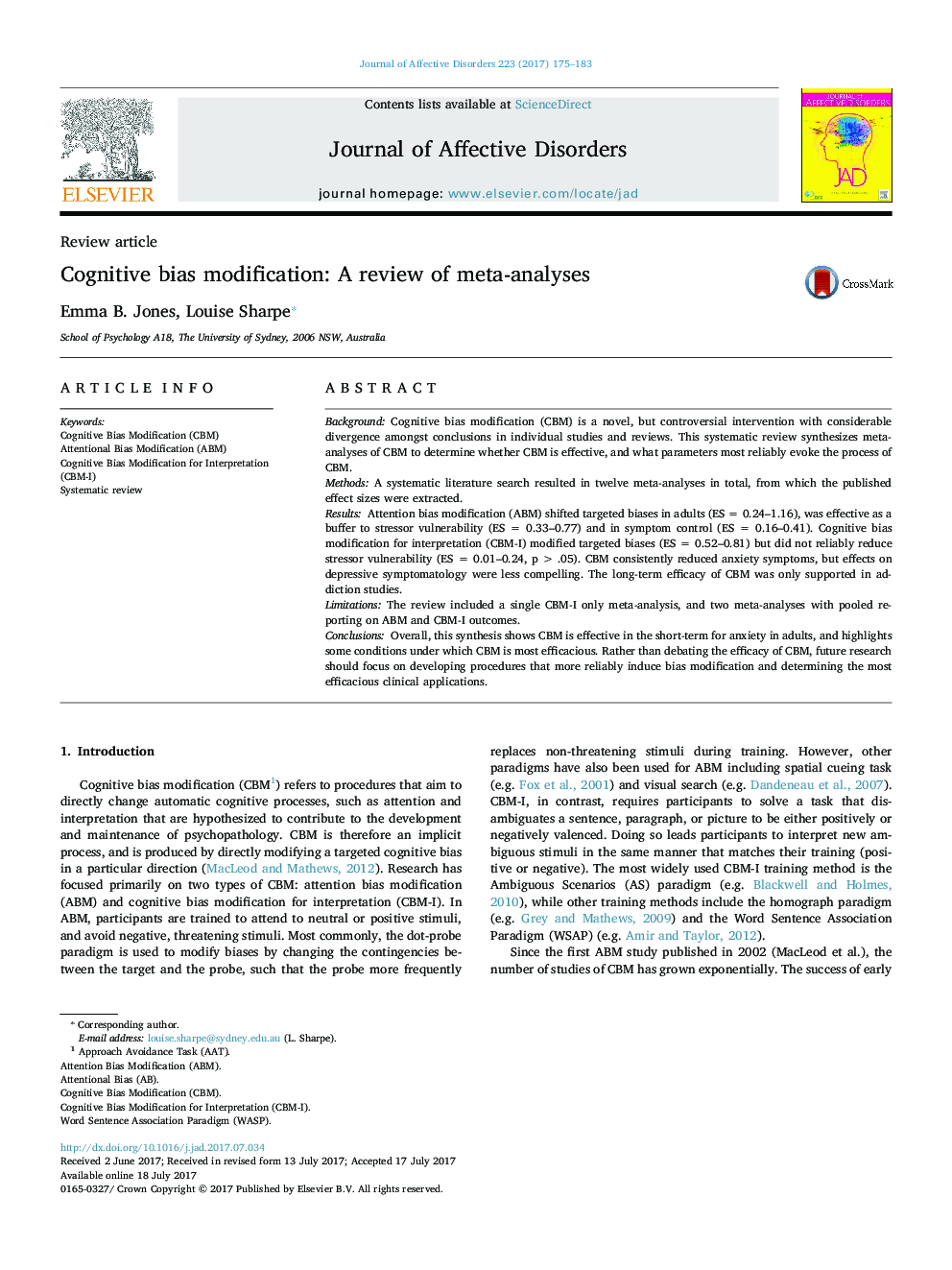| Article ID | Journal | Published Year | Pages | File Type |
|---|---|---|---|---|
| 5721808 | Journal of Affective Disorders | 2017 | 9 Pages |
â¢This review provides a synthesis of existing CBM meta-analyses.â¢CBM consistently modifies targeted biases in adults.â¢CBM consistently reduces anxiety symptoms.â¢Recommendations to increase the efficacy of CBM are proposed.
BackgroundCognitive bias modification (CBM) is a novel, but controversial intervention with considerable divergence amongst conclusions in individual studies and reviews. This systematic review synthesizes meta-analyses of CBM to determine whether CBM is effective, and what parameters most reliably evoke the process of CBM.MethodsA systematic literature search resulted in twelve meta-analyses in total, from which the published effect sizes were extracted.ResultsAttention bias modification (ABM) shifted targeted biases in adults (ES = 0.24-1.16), was effective as a buffer to stressor vulnerability (ES = 0.33-0.77) and in symptom control (ES = 0.16-0.41). Cognitive bias modification for interpretation (CBM-I) modified targeted biases (ES = 0.52-0.81) but did not reliably reduce stressor vulnerability (ES = 0.01-0.24, p > .05). CBM consistently reduced anxiety symptoms, but effects on depressive symptomatology were less compelling. The long-term efficacy of CBM was only supported in addiction studies.LimitationsThe review included a single CBM-I only meta-analysis, and two meta-analyses with pooled reporting on ABM and CBM-I outcomes.ConclusionsOverall, this synthesis shows CBM is effective in the short-term for anxiety in adults, and highlights some conditions under which CBM is most efficacious. Rather than debating the efficacy of CBM, future research should focus on developing procedures that more reliably induce bias modification and determining the most efficacious clinical applications.
